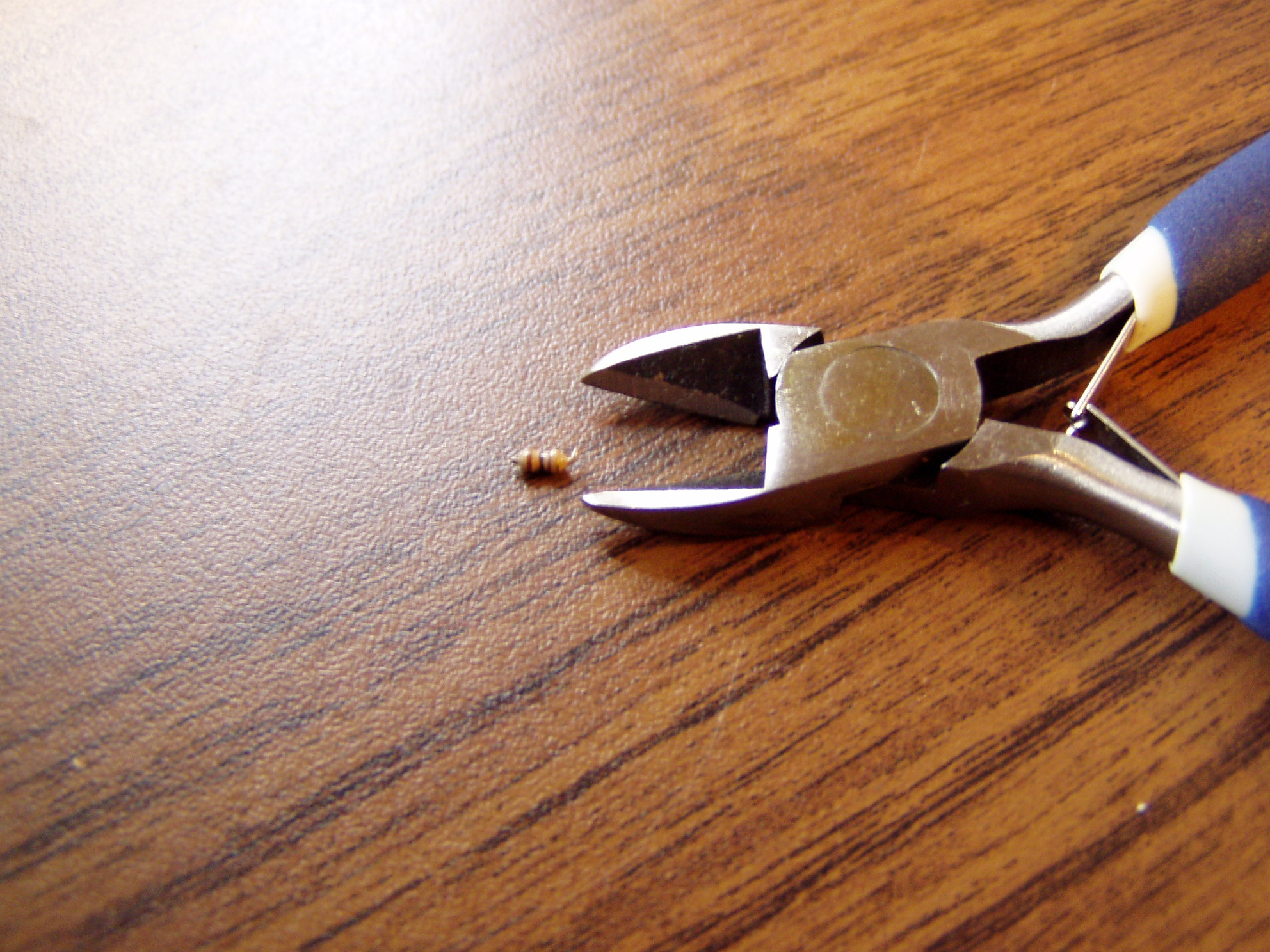Clipping your modulation limiter
Cobra Uniden Antenna Amplifiers Microphones Cb radio reviews modifications
Cobra Uniden Antenna Amplifiers Microphones Cb radio reviews modifications
Clipping your modulation limiter
|
It’s often referred to as the biggest no-no in CB radio. People may get upset at the mere mention of clipping a modulation limiter. They may tell you that you’re an idiot if you remove it. And that’s the nice version you may hear from your friends. Well, first of all lets discuss what a modulation limiter is – so that everyone will have an understanding of the whole discussion. As you know a CB most often is used to operate on AM (Amplitude Modulation) and as the name implies modulation is very important. A radio signal without modulation is a carrier wave; modulation is adding information to the carrier signal. In the case of your CB radio the information you are adding to the signal is your voice. So if you want as much of your voice as possible to be attached to the signal you would want to reach 100% modulation. This would be the complete voice signal information being attached to the carrier. Your radio has a modulation amplifier circuit inside of it which helps take your voice from the microphone and beef it up to make it a loud enough modulating signal for transmission. People also add power microphones and such to add “gain” and increase the amount of signal going into the modulation circuit to increase modulation. Many CB radios come with a modulation “pot” or variable potentiometer inside so that the amplification of the modulation circuit can be adjusted for best results. SEE HERE Example – Your cb radio is reaching 80% on a modulation meter. The radio covers are removed, the modulation potentiometer is located and turned up and then your radio is now reaching 100% modulation. Sounds simple? It’s not. Many radios do not have a modulation potentiometer; and even radios that do have one may not give the user 100% modulation after adjustment. This is the case normally when people start clipping modulation limiters. The modulation limiter is usually a resistor or diode and it’s purpose it to limit or control the amount of modulating signal going in or out of the modulation or (AMC) circuit. The limiter is in place to prevent the radio from going over 100% modulation which can cause splattering and distortion. Now if your radio doesn’t have an adjustable pot for the modulation adjustment and you’re only reaching 60% modulation and have added a power microphone and have turned the mic gain on the radio to max it may be a case where people would suggest clipping the modulation meter. Example – I had a Johnson 250 Messenger 50th Anniversary Edition 23 channel AM only radio. This radio did not have a adjustable modulation circuit. I added a power microphone but was not reaching 100% modulation. I removed the limiter and retested – the modulation was going over 100% resulting in feedback and distortion. I lowered the amount of microphone input gain on the power microphone and was able to find a 100% modulation balance with a clean transmission. As shown in the example above when using a adjustable gain microphone – a operator can reach 100% modulation without over-modulating after removing a modulation limiter by varying the amount of signal being picked up by the microphone and sent into the modulation circuit. But this rarely happens and that’s where the arguments and controversy begins. Most CB operators want to be LOUD on the air and reaching 100% modulation can do that for you, but they try to push the limits. They will remove limiters when it’s not necessary or even do so in radios that have adjustable pots to try to get as much modulation as possible going through the radio. This results in a very loud distorted signal that can cause splatter to adjacent channels and stray RF emitting from the antenna and radio. This over-modulation causes stress on the radio and makes other parts of the radio act outside their normal operating frequencies, temperatures, etc. When you hear people complaining of “bleed-over” from another channel in many cases it’s because of uses who have radios with clipped modulation limiters. So what is the right thing to do? Well, most people would agree that clipping a modulation limiter is not a good idea. But on occasion it can work and produce productive results, but those results have to be measured carefully to ensure that the radio is not exceeding 100% modulation and removing the limiter did not cause any other ill effects to the modulating circuit. The best advice is to leave the modulation limiter alone. In most cases the radio manufacturers have more experience and research invested in making the radio work well than the end user. This means they they have chosen certain parts to work based on extensive testing and design by professionals. Taking your clippers and undoing this by removing their carefully selected components will most certainly cause more negative than positive. Can removing a modulation limiter work well in certain cases? Yes. But we’re talking a very small percentage of the time and doing so at risk to your radio or even voiding your warranty. That’s why many people say don’t ever remove a limiter! I guess the choice is really up to the operator and the end result will be whatever they choose it to be, which the rest of us hope is not a splattering, over-modulated, distorted signal. |
Cobra Uniden Antenna Amplifiers Microphones Cb radio reviews modifications
Cobra Uniden Antenna Amplifiers Microphones Cb radio reviews modifications
This website is purely for entertainment purposes. Any and all articles, reviews, products, pictures, writings or any other material published on this website are written and are to be used for entertainment purposely only. All materials on this website are written and posted purely to entertain the reader/website visitor. All opinions, articles and written statements on this website are opinion. Anyone visiting and viewing the material on this website agrees that the content on this website is to be used for entertainment purposes only. This website does not condone or take part in illegal activites and can not be held responsible for any illegal acts committed by anyone including visitors or any other persons who may read or see or hear about any content from this website. Since this websites content is purely for entertainment and is purely for entertainment purposes we refer anyone seeking information regarding any electronic devices governed by the FCC including CB radios to visit the website of the Federal Communications Commission. For factual information regarding Citizens Band radio rules and operation please visit the FCC website at http://wireless.fcc.gov/services/index.htm?job=service_home&id=cb . The FCC is a government factual source for legal rules and information on how to buy, use, and operate a CB radio.



